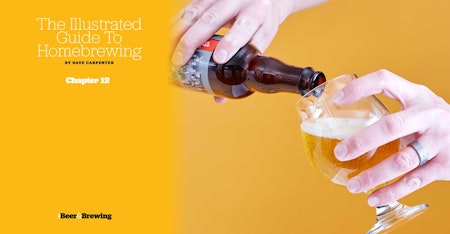Go far enough down the road of homebrew obsession, and sooner or later you’ll find yourself needing to ship some beer. Whether submitting samples to a competition, participating in a Secret Santa swap, or simply offering a bottle of your 2008 barleywine as a holiday gift, getting your precious homebrew from point A to point B is, unfortunately, not as straightforward as it ought to be. Here are some options to help you navigate the murky waters.
Deliver It Yourself
This is by far the least complicated method of moving homemade beer, at least legally and ethically speaking. Competitions often have designated drop sites at homebrew stores nationwide, in which case you can deliver your submission to the location nearest you and wash your hands of the whole mess. However, if your beer’s destination happens to be two time zones removed, driving it there isn’t exactly practical. Whatever you do,
Don’t P.O. the P.O.
It’s patently illegal to ship alcohol through the U.S. Postal Service, so just don’t even try. The law is right there, plain as day, for all to see in Title 18, Part I, Chapter 83, Section 1716, Paragraph (f) of the United States Code:
All spirituous, vinous, malted, fermented, or other intoxicating liquors of any kind are nonmailable and shall not be deposited in or carried through the mails.
So there you go. Keep those intoxicating liquors out of the mails.
Since the Postal Service isn’t an option, your best bet is to use a national freight carrier. But to do so, you’ll need to learn a little new lingo in the form of
Carrier Pidgin
If you’ve ever enrolled in a wine-of-the-month club (the gift that keeps on giving the whole year), you already know that private carriers offer wine shipping services. But these are available only to professional merchants who have entered into a special contract with the shipping company. So, unless you’re a licensed vintner, they don’t want to ship your booze.
This doesn’t mean they won’t ship your homebrew, just that it’s against the terms of service for you to ask them to. If you and they choose to turn a blind eye to such policies, you should be careful how you communicate what is in your package to the carrier. If you disclose that you have beer in your package, you will likely leave them no choice but to reject your package. Obviously how you handle this communication is up to you. We have no advice on the matter.
Just be aware that no euphemism in the world will save you if your bottles break en route. That’s why it’s important to
Cushion, Wrap, and Cushion Some More
Assume that your parcel will be given the same level of care as checked baggage being loaded onto a commercial airliner. This isn’t to suggest that shipping companies intentionally mistreat cargo, but some dropping, shoving, and tumbling is all but inevitable. So this is no time to skimp on padding.
As with dressing for outdoor adventures, it’s best to go with layers. Wrap each bottle generously in bubble wrap, and place each bubble wrapped bottle in its own plastic bag. Then wrap the bottles all together in yet more bubble wrap and tie the whole thing up in a large plastic bag before putting it in the box.
If your parcel makes it, then chances are you’re in the clear, but there are
Other Legalities
The laws concerning transportation of alcohol across state lines, by any means, are complex, and I won’t even try to cover those here. It is possible (though very unlikely) that your parcel could be confiscated by a state’s alcohol control board. This would probably only happen if there’s reason to believe your shipment contains alcohol: like, say, if a bottle breaks. Should this happen, there’s just one thing you need to remember.
I am a writer, not a lawyer, and this article is a work of fiction.
Cheers!








